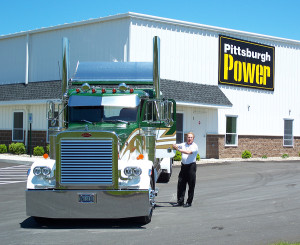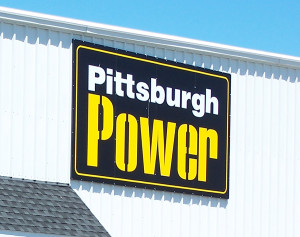 Thank God for our smart, performance-minded, computer tech engineers! All I can say is that us older mechanical engine mechanics really need to listen to the computer tech guys that love making trucks perform better, improve fuel mileage and, of course, reduce emissions. The following are some success stories from our engineering department from just the past two weeks.
Thank God for our smart, performance-minded, computer tech engineers! All I can say is that us older mechanical engine mechanics really need to listen to the computer tech guys that love making trucks perform better, improve fuel mileage and, of course, reduce emissions. The following are some success stories from our engineering department from just the past two weeks.
Bob Dent brought in a DD5 Detroit and was complaining of low power. His engine’s computer program was a disaster, and the injectors were worn out. Furthermore, the injectors only had 300,000 miles on them, which is why I tell owner operators to use Lucas Injector Cleaner – your injectors need the lubricity to eliminate wear in the barrel and plungers. As far as the ECM goes, some guy that calls himself the “Doctor” did the programing. On the 12.7-liter Detroits, the “Doctor” likes to set all of the injectors to 75, which is wrong. When you do this, all six injectors deliver different amounts of fuel to the cylinders and the engine can run rough. Be careful who you allow to mess with your brain – and your engine’s brain, too. By the way, there are a few people out there in North America that consider themselves the “Doctor” of diesel engines, but they weren’t even born when we started building engines.
Ken Graff brought a 2012 Coronado to us with the climate controls not working. The engineers found a corroded module in the blower motor. Problem solved!
Rob with Arnold Transport came to us with ECM failures. The battery in the ECM was just starting to fail, so his problem was an easy one to solve. A Detroit dealership would have installed a Reman ECM, costing about $2,500 with labor.
Eric Raymond brought his 5EK Cat in for ECM programing. He reported back to us with a solid 7 mpg. I love the 5EK Cat engine, however it has a habit of breaking crankshafts. If you install our crankshaft damper every 500,000 miles, this problem will not happen. The 5EK was available in 1995 and was in production until 1997. It’s a great-running engine and, when equipped with a Pittsburgh Power computer, our ported and ceramic coated exhaust manifold and HP Cat Turbo, it is a winning combination. Think about this: with Eric getting 7 miles per gallon, where do you think the emissions are? About 30% cleaner than a stock engine!
 David Bowling had his truck towed to us because it would not start. It was a Caterpillar 6TS, another great Cat engine. Most shops would have installed a Reman ECM at a price of about $2,600 but we were able to repair it by simply installing a new crank sensor.
David Bowling had his truck towed to us because it would not start. It was a Caterpillar 6TS, another great Cat engine. Most shops would have installed a Reman ECM at a price of about $2,600 but we were able to repair it by simply installing a new crank sensor.
Richard Kasperak spent $140 per hour at several Freightliner dealerships to troubleshoot an outside air temperature sensor for his instrumental panel. Leroy in our shop had it repaired in just 20 minutes. If all problems were repaired this fast, I would not have a business! Another owner operator came to us with intermittent ABS wheel speed sensor problems. He had his truck at multiple truck dealerships and they could not fix the problem. Our engineers found grease and road grime covering the tone ring causing low signal voltage. A little cleaning and the ABS problem was history.
A good friend and loyal client, Tim McFeathers, called and said his driver was in West Virginia and the VG turbo was spooling up and down while he was holding his foot steady on the throttle. Most shops would have installed a new $2,500 turbo (plus labor), which would not have corrected the problem. Plus, most shops will not take new parts back off the engine, they just keep adding more. We found a small rusty hole on the back of the line delivering air to the VG turbo. We did not have a new line in stock, but we had a good used line. The problem was repaired for just a few dollars.
Troubleshooting is something we do very well at Pittsburgh Power, and we have been this way since the beginning in December of 1977. We have a DD5 Detroit-powered truck coming to us that was just rebuilt in Chicago. The engine is using a gallon of coolant every 3,500 miles and some of it is getting into the oil. The shop that did the rebuild has no idea what the problem is. I have no doubt that once the truck gets to us we will find the problem, repair the engine, give it 100 more horsepower, improve its fuel mileage, and make it trouble-free for the owner. It’s amazing what 100 to 150 additional horses can do for your driving pleasure – and how much more money it will let you keep in your wallet!
 We have one of our Signature 6NZ Caterpillar engines built and ready to go into your new glider kit or to re-power your existing truck. The horsepower can be set from 550 to 750, or more. When properly driven, this engine will give you at least 7.5 mpg. If you want to talk to someone with one of these engines, give Patrick Lucash a call at (330) 542-9315. We re-powered his 379 Pete with one a little over a year ago, and it has saved him $34,000 in fuel to date. Plus, he loves the power, and never has to run it wide open.
We have one of our Signature 6NZ Caterpillar engines built and ready to go into your new glider kit or to re-power your existing truck. The horsepower can be set from 550 to 750, or more. When properly driven, this engine will give you at least 7.5 mpg. If you want to talk to someone with one of these engines, give Patrick Lucash a call at (330) 542-9315. We re-powered his 379 Pete with one a little over a year ago, and it has saved him $34,000 in fuel to date. Plus, he loves the power, and never has to run it wide open.
I’m an outdoorsman and, like most of us, I appreciate blue skies, clean water, white snow and fresh air. My belief is that if we want to improve the quality of the air we breathe, we must make better fuel mileage the goal. We are still working on the 10 mpg truck, and just might have it soon. We could cut diesel fuel consumption by 40% if every semi-truck obtained 9 to 10 mpg. Think about this – when we run out of diesel fuel, we all shall die. Life depends on air, water and diesel fuel.
Think diesel fuel is not part of the equation to sustain life? Think about this: from the time a raw material comes out of the ground or is a tree that is cut down, it’s hauled a minimum of seven times on a truck until it’s a finished product in a store available for sale. Another fact: 75% of the cost of a product is transportation. These figures are from back in the 1980’s, but they are still true today. People on this earth cannot exist unless people drive trucks, build diesel trucks, operate diesel-powered farm equipment, and take oil from the ground and turn it into diesel fuel. After 48 years in the trucking industry (with the past 39 of those years building engines), I believe these facts to be true.
Sometimes problems are complex and expensive to correct, and sometimes they are simple and cheap to fix. Our engineers are trained to find your problems and correct them, not spend your money. I hope you enjoyed these success stories, and that they encourage you to not be afraid of taking your truck to a shop – at least not ours! If you have comments or questions, I can be reached at Pittsburgh Power in Saxonburg, PA by calling (724) 360-4080.

1 Comment
Bruce and the boys at Pittsburgh Power are the ones to talk to, when you are rebuilding an engine, or making it run better. They have the really GOOD stuff.
In my case, they are less than 1/2 the price of the local Cat dealer here in Canada for injectors, turbo, damper, and balancer. (And Cat doesn’t sell a balancer) those parts on a 425 Cat, turned a pussy into a freight train.
Everyone thinks you are up to no good…..driving around wearing a smile like that.